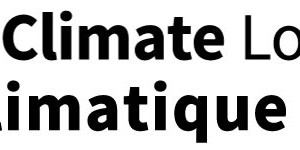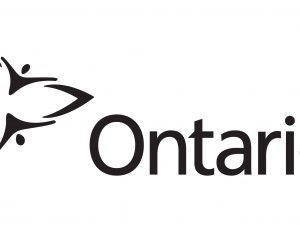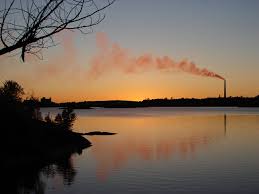Citizens’ Climate Lobby Canada’s reaction to Obama’s State of the Union Address, January 14, 2016, pdf version It is apropos to quote David Bowie’s Space Oddity because President Obama cited the space race in his last State of the Union Address on Tuesday, January 12, 2016 when talking about the climate crisis and reigniting innovation: Sixty years ago, when the Russians beat us into space, we didn’t deny Sputnik was up there. We didn’t argue about the science or shrink our research and development budget. We built a space program almost overnight, and twelve years later, we were walking on the moon.” In the past seven years, President Obama has created policies to address the climate crisis. However, the USA’s current commitments to reduce greenhouse gas emissions, although better than Canada’s Inadequate ranking from Climate Action Tracker, are deemed at the low end of Medium. If all countries chose to reduce their emissions at the Medium level, the global temperatures would exceed the 2oC limit. (The Climate Action Tracker is an independent scientific analysis produced by four research organisations tracking climate action, since 2009.) Canada cannot wait for the USA: President Obama is correct in being hopeful about addressing the climate crisis because the cold hard fact is climate action will save the global economy trillions of dollars compared to climate inaction according to a 2015 Citigroup report. With a grid-locked US Congress and all the front -runner Republican candidates for president ignoring the threat of the climate crisis, Canada cannot wait for the USA to act on the climate crisis. Canada should take the lead: On January 13, 2016, Glen Hodgson of the Conference Board of Canada said pricing carbon is a cornerstone policy of building a low carbon future. However, Canada needs to price carbon with the USA in mind. “Planet Earth is blue” and there is something Canada can do: price carbon nationally and impose border tax adjustments. This would encourage the USA to adopt an equivalent price on carbon. (For a full list of organizations endorsing carbon pricing in Canada please go HERE). The North American Free Trade Agreement (NAFTA): A national carbon tax is allowable under NAFTA Article 604: Export Taxes, parties are allowed to maintain duties, taxes or other charges on the export of any energy or basic petrochemical good to the territory of another Party if the duty, tax or other charge applies to the exports of any such good to the territory of all other Parties and any such good when destined for domestic consumption. Canada and the USA are Intricately Linked Together: NAFTA was one of the world’s first trade agreements. It is not surprising because Canada and the USA are intricately tied together geographically, economically and historically. The USA is Canada’s largest trading partner and we are their second largest trading partner. Until recently, Canada has been following the USA’s climate and energy policies almost in lock-step. By May 2015, when Canada submitted plans to reduce greenhouse gas emissions, called the intended nationally determined contributions (INDCs) , we officially fell behind the USA. That is why Canada has an Inadequate ranking from Climate Tracker whereas the USA has a slightly better ranking at Medium. In 2013, pollster Nik Nanos published a paper about the strained relationship between Canada and the USA’s energy policies. Nik Nanos said in 2013, “We are desperately in need of a forthright dialogue between Canada and the United States in terms of carbon policy and the environment. The Royal Proclamation of 1763 and Carbon Pricing: Canada and the USA share a common history. Before 1776 we were one nation in a partnership with the First Peoples that were already here. The Royal Proclamation of 1763 is still recognized under international law and national law in Canada. At the 2015 Paris climate negotiations, Canada committed to stand up for Indigenous Rights. Thus, it must be noted the following was stated by the International Indigenous Environmental Network in Paris regarding cap and trade: “The Paris accord is a trade agreement, nothing more. It promises to privatize, commodify and sell forested lands as carbon offsets in fraudulent schemes such as REDD+ Projects. These offset schemes provide a financial laundering mechanism for developed countries to launder at their carbon pollution on the backs of the global south.” – Alberto Saldamando, Human Rights Expert & Attorney Medicare and British Columbia’s Carbon Tax: PM Trudeau promised a Medicare model for climate change. Like our national health care system, a nationally integrated and rising carbon price will be beneficial for all Canadians. British Columbia has shown us the way with the BC Carbon tax. It was been successful in decreasing BC’s fossil fuel use while growing the economy. British Columbia, Premier Christy Clark and their carbon tax could be to the climate crisis what Saskatchewan, Tommy Douglas and social medicine were to Canada’s national health care system. New Canadian Climate and Energy Plans Expected Early in 2016: PM Trudeau has promised to meet with the Premiers to discuss a national climate energy plan within 90 days of the Paris negotiations. PM Trudeau is planning to meet with President Obama in late March. Though not confirmed there may be a meeting between President Obama, Prime Minister Trudeau and Mexican President Enrique Pena Nieto, for a Three Amigos meeting in late March early April. Currently, Finance Minister Bill Morneau is seeking input on Canada’s budget to be announced in the spring. Finally, it is anticipated Canada will formally sign the Paris agreement on Earth Day 2016. Transforming Canada by 2017: Early Adapters Will Seize the Day: In the 21st century, the countries that adapt early with national policies to help transition to a low carbon economy will tap into the multitrillion dollar global clean tech economy. All we lack now in Canada to tap into that economy is political will and price on carbon to spark that transition. Oil prices are currently low and will probably remain low for some time. Now is the time to enact a nationally integrated revenue neutral carbon tax. This carbon tax should be incrementally rising, support ordinary families and people on fixed incomes as we transition to a low carbon economy and create clean tech jobs across Canada. Carbon fee and dividend is the revenue neutral carbon tax policy Canadians should consider.PLANET EARTH IS BLUE AND THERE IS SOMETHING WE CAN DO CANADA
Contact: Cathy Orlando cathy@citizensclimatelobby.org 705-929-4043
“Planet Earth is blue” but unlike what is said in the song Space Oddity, there is something Canada can do: price carbon nationally and impose border tax adjustments.
In the 1969 song, Space Oddity, the late David Bowie sent out a warning, “Ground control to Major Tom, Your circuit’s dead, there’s something wrong. Can you hear me Major Tom?”
The BC Carbon Tax has stalled: The BC carbon tax price has currently stalled and their greenhouse gas emissions are now rising. To make a full transition to a low carbon economy we need a nationally integrated carbon price that is incrementally rising, revenue-neutral and has border tax adjustments. Border tax adjustments would protect industries by leveling the playing field nationally and internationally. It would also provide much less red tape especially for small to medium sized businesses which employ almost 90% of the private labour force in Canada.
Looking Ahead to 2017
1) It is Canada’s 150th Birthday.
2) It will be 100th anniversary of Vimy Ridge – where we became a nation.
3) It will be the 100th anniversary of income taxes in Canada – a temporary policy enacted by Halifax’s Conservative wartime Prime Minister Robert Borden in 1917. Canada has everything we need to transform to a 100% renewable energy future, from wind, water and solar resources by 2050 without nuclear energy according to Dr. Mark Jacobson of Stanford University. This includes energy for transport and heating fuel and electricity. We just need the political will for effective policies that will help us make the transition without burdening ordinary families.
Canada has everything we need to transform to a 100% renewable energy future, from wind, water and solar resources by 2050 without nuclear energy according to Dr. Mark Jacobson of Stanford University. This includes energy for transport and heating fuel and electricity. We just need the political will for effective policies that will help us make the transition without burdening ordinary families.
Political Will: Could Canada in 2017 start replacing Prime Minister Robert Borden’s “temporary” and regressive 1917 income tax with pollution taxes by enacting a national revenue neutral carbon price that is integrated with existing provincial carbon pricing policies? It is up the media and the grassroots to generate that political will.
Media Packet: PLANET EARTH IS BLUE AND THERE IS SOMETHING WE CAN DO CANADA
Home » CCL Canada News » Media Packet: PLANET EARTH IS BLUE AND THERE IS SOMETHING WE CAN DO CANADA
Media Packet: PLANET EARTH IS BLUE AND THERE IS SOMETHING WE CAN DO CANADA
Posted on January 14, 2016 in Media Release






